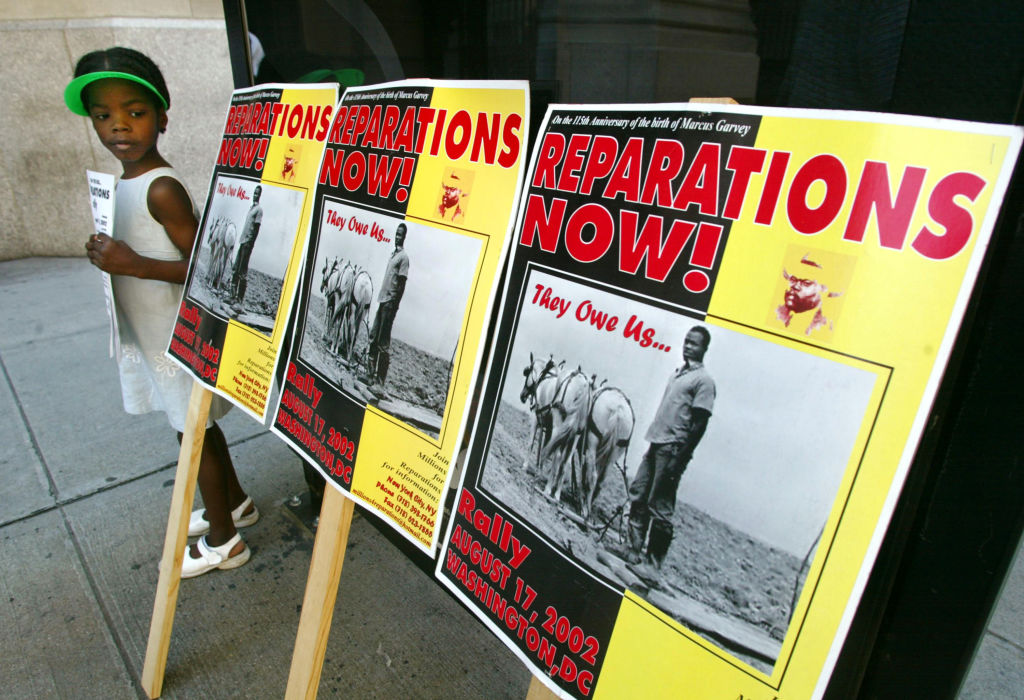Should Britain have compensated slave-owners? At first glance, the question seems ridiculous. Comedian London Hughes asks if we think it’s ‘disgusting that when slavery ended, the UK government paid out millions to former slave owners as a way of saying sorry’. Academic Jason Hickel notes disapprovingly that British taxpayers ‘were paying reparations from the abolition of slavery in 1833 all the way to 2015…but to the *owners* of slaves rather than to former slaves themselves’. Even the BBC is questioning the ‘whiff of self-congratulation’ around the abolition movement.
But while nuance may be unfashionable, some issues deserve careful treatment. Whether compensating slave-owners can be viewed as a moral good depends on what question is actually being asked. If the question is ‘Did slave-owners deserve compensation?’, then the answer is clearly no. People who profit from the misery and brutalisation of others do not deserve recompense when they are forced to stop. If the question is ‘Should the abolition movement have waited until a complete victory was available?’, then it’s a different matter.
Put yourself in the shoes of an abolitionist in Parliament in 1833. You are a member of a movement that started in the last century. The slave trade was outlawed in 1807 but the institution of slavery continues in the colonies, where plantation owners are desperate to maintain it. Throughout your long campaign you have faced a powerful West Indian lobby, able to buy seats (the notorious rotten boroughs) in Parliament to ensure that its interests are well guarded. As a measure of its success, remember that the viability of the plantations effectively rested on heavy government support in the form of tariffs on competitors, administration, and military protection.
Last year, the Reform Act finally weakened this lobby to the point where abolition may now be plausible. But there is still a catch. You feel, in the words of one parliamentarian, that ‘if any persons are entitled to compensation, it is the slaves themselves; those very men whose lives…have been unwillingly devoted to the service of the planters’, but you also know that compensation will probably be a necessary evil if emancipation is to be won; you need votes and compliance. The Sugar Interest is pushing for a sum far in excess of what you suspect their actual profits to be, but as Fowell Buxton puts it you are ‘quite ready, and so are the people of England, to give the planters [£20m] if it will secure complete emancipation to the slaves, but certainly not otherwise’.
And it’s here that your efforts are still being directed. The planters are insisting on a system of ‘apprenticeship’, where the slaves will effectively continue to provide forced labour for another twelve years; ‘twelve years of suffering’ while MPs ‘talk of liberty existing in every part of the British dominions’.
You find compensation and ‘apprenticeships’ morally abominable. On the other hand, without these concessions you fear that abolition may have to wait; this is your ‘best chance’ and ‘fairest prospect of a peaceful termination of slavery’. Do you take this less than perfect abolition after decades of work, or do you hold out for total victory?
Looking back from the comfort of the 21st century, it’s easy to say that no compensation should have been made. We have nothing riding on our words and can cleave to the clear moral principle that a criminal does not deserve a reward simply for ceasing to commit a crime. But pretending that this was the choice faced at the time – that compensation was simply a way of saying ‘sorry’, or ensuring that slave-owners received what they were owed – creates an image of the past every bit as mythical as the self-congratulatory tale of abolition condemned today.
Myths tell us who we are, how we relate to one another, and how we should act. The renewed discussion of slavery is in part meant to provide a moral imperative to fix injustices in the modern world, drawing a thread of responsibility from the past to the present. But while replacing a story of glossed-over horrors and national pride with an equally simplistic narrative of original sin may suit the rhetorical needs of the moment, turning history into a sequence of morality plays in which no difficult moral choice is ever really faced does us a tremendous disservice. If we don’t genuinely understand the past, we cannot use it as a tool to interpret the world around us.
As for the morality of compensation, the abolitionists chose to pay because it meant an early end to the struggle. To wish that things had been otherwise is almost to indicate a preference for a more extended period of suffering so that we can feel better about the moral purity of the way slavery ended; a clearer, cleaner story for the modern world to use as guidance.
Whether that would be worthwhile is up to you.
Sam Ashworth-Hayes is a journalist and economist with an MPhil in economics from Oxford. He blogs at Marginally Productive and can be found on Twitter at @SAshworthHayes







Comments